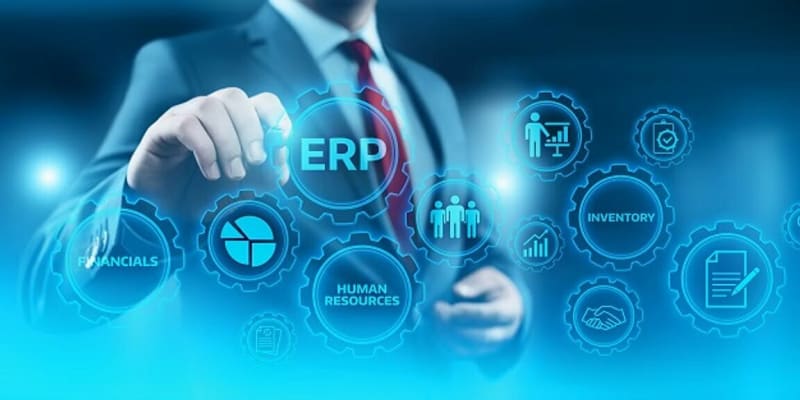In today's fast-paced business environment, startups face a unique set of challenges when it comes to managing their operations. One of the key challenges is to efficiently manage and streamline their business processes. As a startup grows, it becomes increasingly important to manage their resources efficiently and optimize their operations to achieve sustainable growth. This is where an Enterprise Resource Planning (ERP) system comes into play. In this article, we will discuss why startups need ERP systems and how they can benefit from implementing one.
What is an ERP system?
An ERP system is a software solution that integrates all the different functions of a business into a single, centralized platform. These functions include finance, accounting, inventory management, supply chain management, human resources, customer relationship management, and more. An ERP system provides a real-time, 360-degree view of the business, enabling startups to make informed decisions based on accurate data and insights.
Why do startups need ERP systems?
Efficiency and Productivity
As startups grow, they tend to accumulate different software and systems to manage their various business functions. This results in a fragmented system, leading to inefficiencies, duplicate data entry, and lack of visibility across departments. With an ERP system, startups can eliminate these inefficiencies and improve productivity by automating and streamlining their business processes. This leads to increased efficiency, reduced costs, and improved overall performance.
Data Integration
A startup's data is spread across different systems and applications, making it challenging to get a complete view of the business. An ERP system brings all the data together in a centralized location, enabling startups to make informed decisions based on real-time data and insights. This leads to better decision-making, increased agility, and faster response times.
Scalability
Startups are constantly growing, and they need to have systems in place that can scale with them. An ERP system is designed to grow with a business, providing a scalable solution that can meet the changing needs of a startup. This allows startups to focus on their core business operations while the ERP system takes care of the back-end processes.
Improved Customer Experience
Startups need to provide a seamless and personalized customer experience to stay ahead of the competition. An ERP system can help startups achieve this by providing a 360-degree view of the customer across all touchpoints. This enables startups to personalize their offerings, improve customer satisfaction, and build long-term relationships with their customers.
Compliance and Risk Management
Compliance and risk management are critical for startups, especially when it comes to financial and regulatory compliance. An ERP system can help startups manage their compliance requirements by providing real-time visibility into their financials, supply chain, and inventory management. This enables startups to identify and mitigate risks before they become major issues.
Cost Savings
Startups are often operating on tight budgets, and they need to find ways to reduce costs while improving their operations. An ERP system can help startups achieve this by streamlining their processes, reducing manual intervention, and automating repetitive tasks. This leads to reduced costs, improved efficiency, and better overall performance.
Conclusion
In conclusion, startups need ERP systems to efficiently manage and optimize their operations, provide a personalized customer experience, manage risk and compliance, and achieve cost savings. An ERP system provides a centralized platform that brings all the different functions of a business together, enabling startups to make informed decisions based on real-time data and insights. By implementing an ERP system, startups can scale their operations, improve efficiency, reduce costs, and achieve sustainable growth.





Top comments (0)